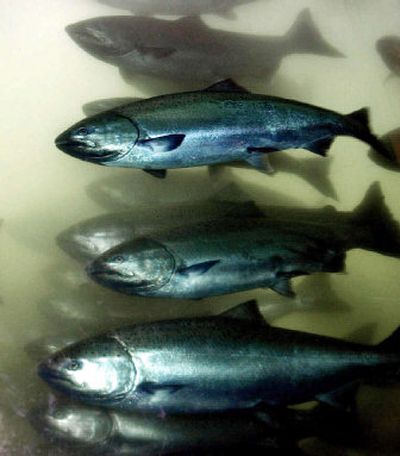Court denies motion to stop dam spill

LEWISTON – A federal appeals court ruling on Tuesday means that – at least for now – cool water will continue to be spilled through four dams on the Snake and Columbia rivers to aid young chinook salmon in their journey to the Pacific Ocean.
In upholding the spill ordered by U.S. District Judge James Redden, of Portland, judges with the 9th U.S. Circuit Court of Appeals in San Francisco ruled that the Bush administration had failed to demonstrate a likelihood it would prevail on the merits of the case, and had not demonstrated that going ahead with the spill would cause irreparable harm.
However, they agreed to speed up the schedule for the government’s full appeal so it could be heard this summer, before the salmon migration is over.
The spill began Monday and is to continue through August at Lower Granite, Little Goose, Lower Monumental and Ice Harbor dams on the Snake River in Eastern Washington, and McNary Dam on the Columbia between Oregon and Washington.
Redden ordered the extra water to be spilled at the behest of salmon advocates, fishermen and Indian tribes, who earlier this month won a lawsuit challenging the legality of NOAA Fisheries’ plan to minimize the lethal effects of the hydroelectric dams on threatened and endangered salmon.
They had argued that spilling extra water was a better way to help salmon than the government practice of putting about 70 percent of the migration into barges and trucks to be carried around the dams.
The Bonneville Power Administration, which sells the electricity generated by the dams, has estimated spilling the water rather than running it through turbines will cost its customers $67 million.
Salmon advocates, Indian tribes and fishermen have long been trying to persuade the government to split the migration so that half are transported, and half remain in the river.
While each dam only kills a small percentage of fish, there are so many dams that about half the spring-summer chinook run from the Snake River are lost.
The government had argued that Redden had failed to address “the crux of the case: whether an unproven experiment with spill as opposed to the expert agency’s preferred transportation program is required to prevent irreparable injury to the species.”